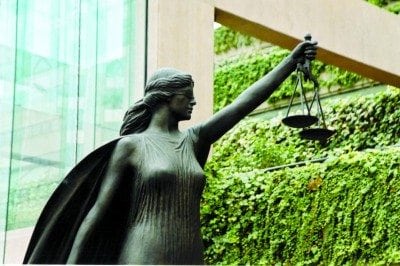ON Wednesday (November 6), the Community Legal Assistance Society (CLAS) will be at the Supreme Court of Canada arguing that powerful companies like Uber should not be able to take away people’s rights using fine print buried deep inside long, complicated user agreements.
The Supreme Court must decide whether a class action lawsuit filed on behalf of Uber drivers in Ontario can go ahead. The drivers allege that Uber is violating their employment rights. Uber is trying to have the case thrown out because the Uber app user agreement says that claims against Uber can only be brought through a private arbitration process. The arbitration process takes place in the Netherlands, and costs $14,500 US dollars just to commence, making it an inaccessible and largely meaningless option for Canadian workers seeking to enforce their legal rights.
The Ontario Court of Appeal allowed the class action to go ahead, finding that Uber’s private arbitration clause is unconscionable and an illegal attempt to avoid Ontario’s employment standards laws. Uber is now challenging that decision at the Supreme Court of Canada.
CLAS has been granted intervenor status (the right to make submissions in the appeal as a non-party) to provide the Supreme Court with perspective on how unfair conditions buried deep in standard form contracts can create serious injustice for everyday people.
“These user agreements are often filled with technical legal jargon that few people read, let alone understand” says Greg Allen, a partner with Allen / McMillan Litigation Counsel who is representing CLAS in the Supreme Court. “People shouldn’t need a lawyer every time they download an app or get a new cell phone plan.”
CLAS is asking the Supreme Court to recognize the power and control that big companies have when dictating the terms of these standard form agreements.
“We can’t allow powerful companies like Uber to play ‘gotcha’ with people’s rights by hiding unfair conditions deep inside the agreements that everyday people must sign just to access basic services” says Kevin Love, a lawyer with CLAS. “The idea that people are freely and voluntarily accepting these unjust conditions is simply a myth.”
The case will be heard by the Supreme Court on Wednesday, November 6, 2019, at 9:30 a.m. EST.










